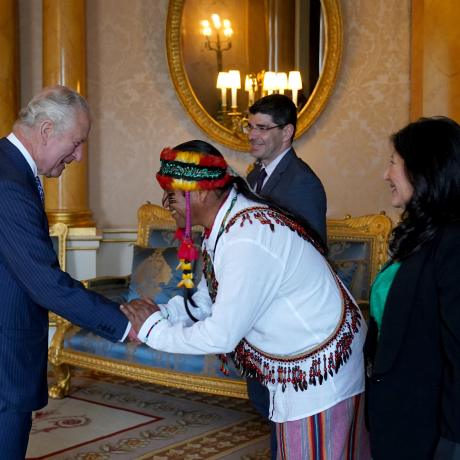What is an Audience?
An Audience is simply a one-to-one meeting with The King. Audiences happen regularly throughout His Majesty's working week.
The majority of Audiences are for members of the diplomatic community, though His Majesty also welcomes political, religious and military leaders, and people who have won prestigious cultural prizes.
The King receives The Prime Minister of St Vincent and the Grenadines, Ralph Gonsalves, and Mrs Eloise Gonsalves, at Balmoral Castle:
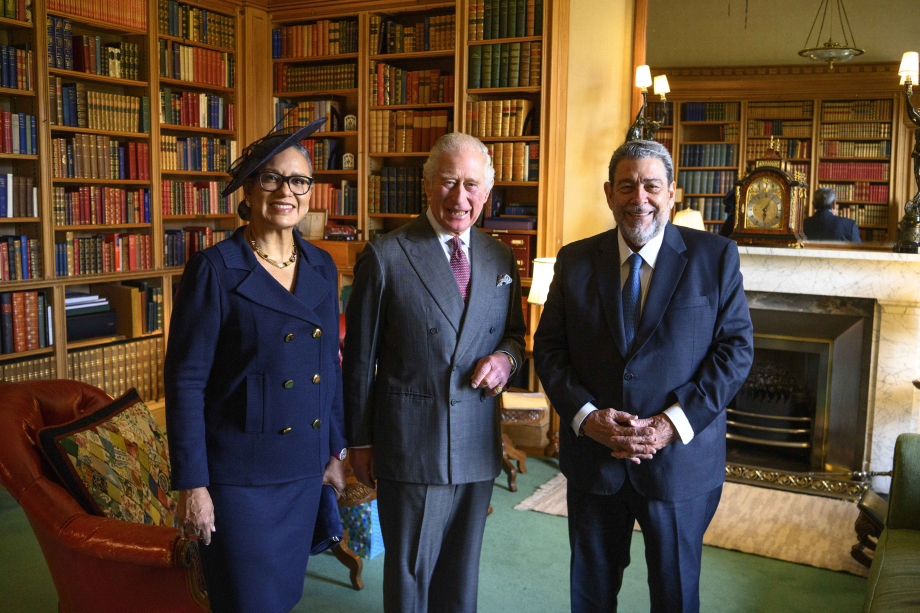
Audiences generally last approximately twenty minutes, and the conversations which take place are entirely private. No written transcript or recording is made.
Diplomatic Audiences
There are more than 170 High Commissioners and Ambassadors based in London at any given time and each one of them will have an Audience with The King shortly after taking up his or her role.
High Commissioners and Ambassadors have identical roles - they both represent the interests of their country in the UK by building diplomatic ties. The only difference is in the title which indicates their country's relationship to The Commonwealth: High Commissioners come from Commonwealth countries and Ambassadors do not.
Diplomatic Audiences have barely changed since Victorian times, and involve some uniquely Royal touches. Diplomats are collected from their Embassy or residence in a State landau (a ceremonial horse-drawn carriage), and travel through the streets of London led by a second carriage which the Marshal of the Diplomatic Corps travels in.
The High Commissioner or Ambassador are able to bring their spouse to this special occasion.
Audiences generally take place in State or semi-State rooms at Buckingham Palace. The High Commissioner or Ambassador and his or her party are announced as they enter the room by the Marshall of the Diplomatic Corps. The King shakes everybody's hands and then the Audience begins.
The King receives the High Commissioner for India, Vikram Doraiswami, and Mrs Sangeeta Doraiswami, at Buckingham Palace:
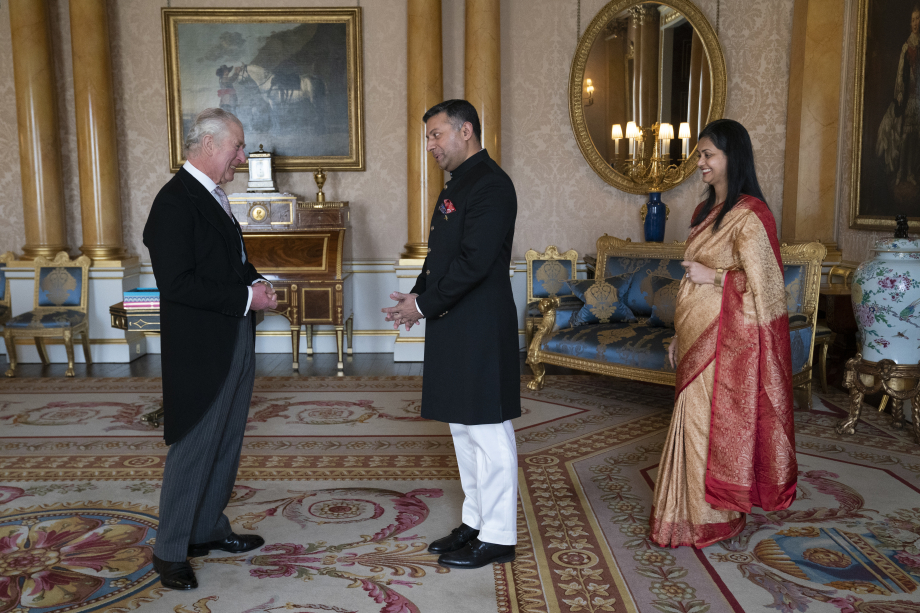
Audiences are noted in the Court Circular, but as The King treats audiences as private meetings, no record of the discussion is made.
At the start of the Audience, diplomats present their Letters of Commission (for High Commissioners) or Letters of Credence (for Ambassadors). Also known as 'Credentials', this is a formal letter from the diplomat's Head of State to The King asking him to give 'credence' to the new High Commissioner or Ambassador. In other words, saying that His Majesty can trust the new appointment to speak on behalf of his or her country.
The King and the visiting party will then speak informally for the rest of the Audience. Often the emphasis is on issues of the day in the High Commissioner or Ambassador's home country. The King is always briefed by his Private Secretaries ahead of his Audiences, so there can be much to discuss.
Political Audiences
The King holds a weekly Audience with the Prime Minister to discuss Government matters. The Audience is entirely private. Though The King remains politically neutral on all matters, he is able to 'advise and warn' his ministers - including his Prime Minister - when necessary.
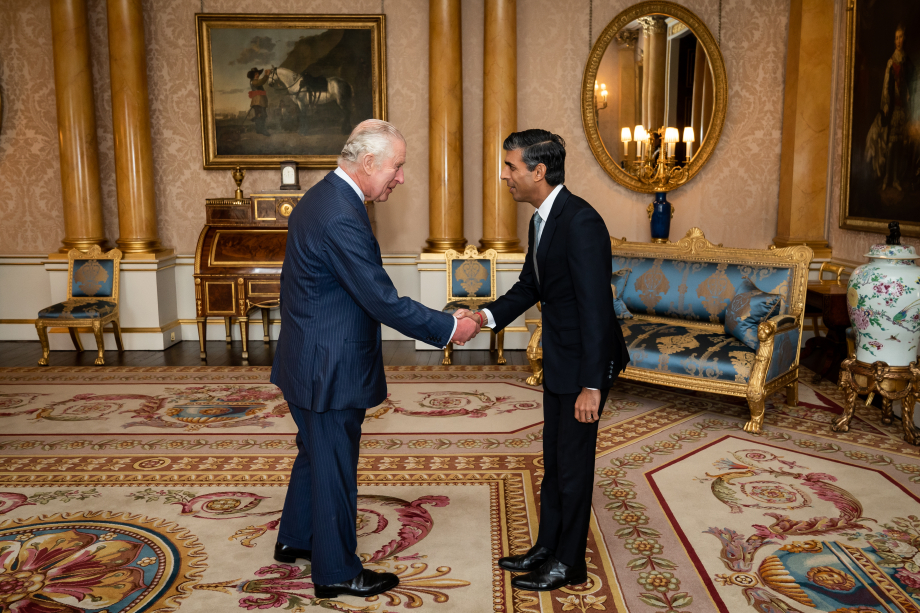
When a potential Prime Minister is called to Buckingham Palace following a General Election or a Prime Minister's resignation, he or she will travel to Buckingham Palace for an Audience with the Monarch. During the Audience, the Monarch will ask whether he or she will form a government. To this question, two responses are realistically possible. The most usual is acceptance.
Before the Budget is presented, the Chancellor of the Exchequer will also have an Audience with the Monarch.
The King also welcomes Heads of State and key foreign dignitaries to his residences for Audiences if they are in the country on business rather than for a formal State Visit.
The King and Queen with King Philippe and Queen Mathilde of the Belgians, at Windsor Castle:
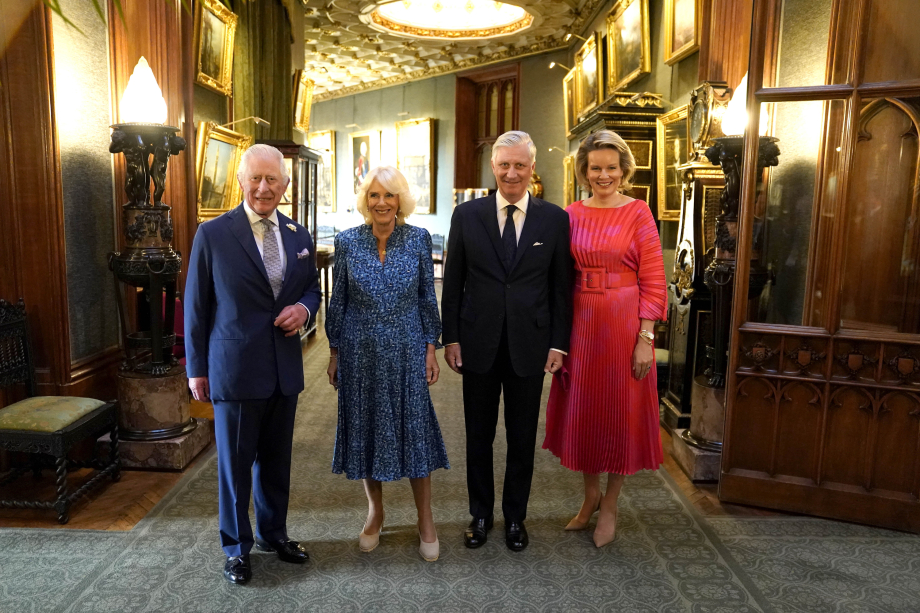
Other Audiences
In addition to their regular diplomatic and political Audiences, The Monarch also meets individuals who have made extraordinary achievements in their fields, particularly if they are taking up a Royal appointment or receiving a prize which is given in their name.
By meeting people privately, or 'granting an Audience', The King acknowledges the importance of certain individuals and their work, and creates an opportunity to learn more about them and to give them a memorable Royal experience.

